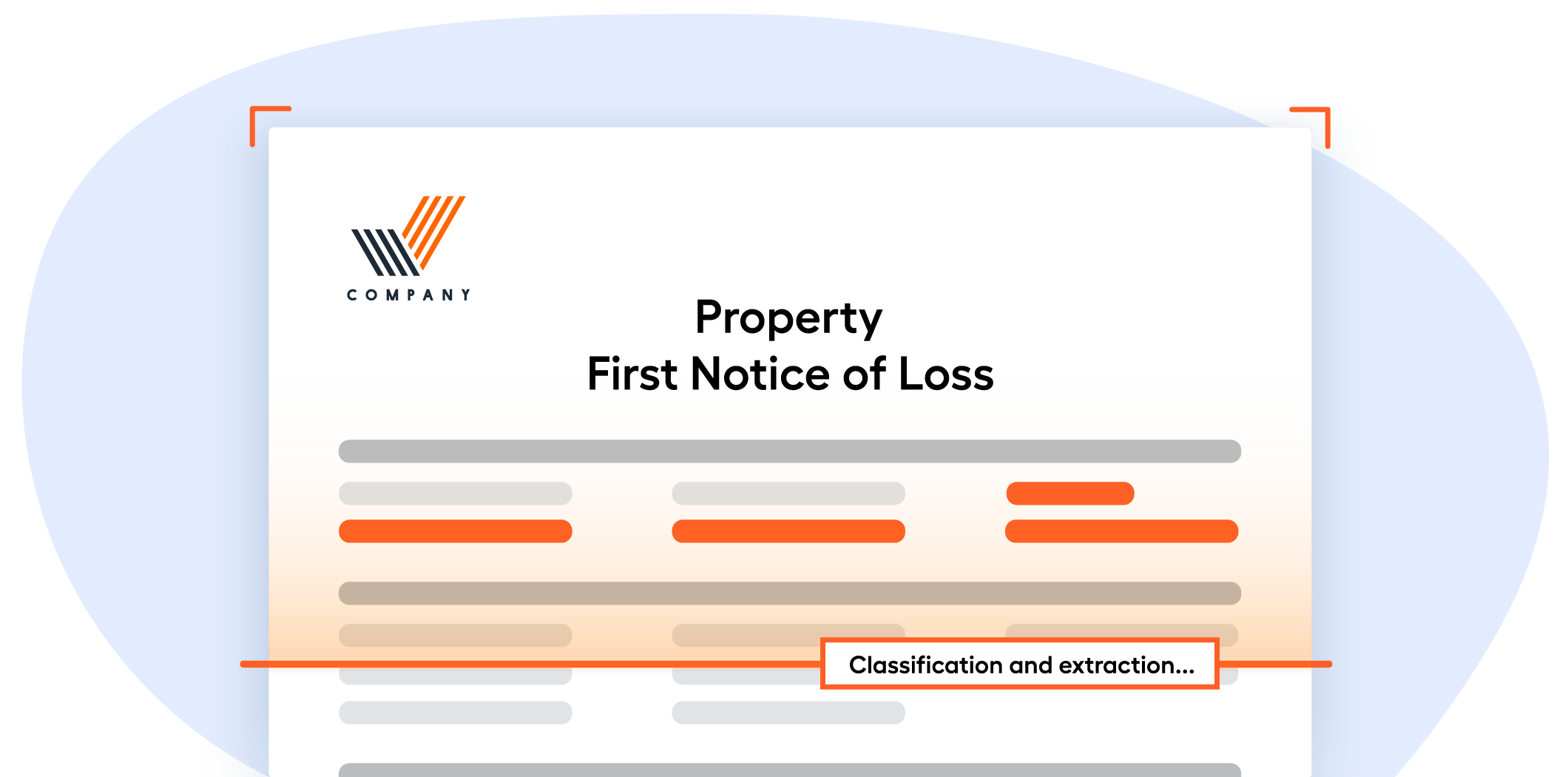First Notice of Loss (FNOL)
Automate FNOL operations to shorten the claims processing time, make your customers happy and your employees more productive.

Why it is important
Today, FNOL documentation comes in from a variety of channels and stakeholders.
Claims representatives receive claims data and supporting information through emails, faxes, phone calls, physical letters, and customer portals. Data may also come in from customers, brokers, appraisers, and others involved in the claim. Documents tend to vary, customer by customer, and so the process has historically required people to read them for information and to keep eyes out for potential inaccuracies or signals of fraud.
Representatives are hesitant or unable to create claims until a package is complete, due to system or compliance requirements, which further slows the process.
Customers are demanding faster responses to their claims, oblivious to peaks in the activity that may be affecting internal processing capacity.
What needs to be improved
Existing FNOL processes are subject to several critical challenges:
-
Unstructured & variable data
Supporting documentation is almost always unique to the incoming claim, and even standard documents can have nuances that require human judgment to read and interpret.
-
High volume
Spikes in volume due to natural events or seasonality can put stress on processes and slow down response times.
-
Fraud
Time constraints mean small-dollar claims may not be as carefully vetted as larger claims, putting insurance companies at risk of loss.
-
Time sensitivity
Retaining your customers long-term requires a high level of service and fast turnaround, which can be difficult to meet without automated processes.
How WorkFusion can help
Speed up and document gathering and data analysis with WorkFusion® Intelligent Automation:
- Receive inbound claims and documentation from emails, ACORD forms, etc.
- Classify document types
- Extract key datapoints (incident data, policy data, loss location, etc.)
- Cross-reference external supporting systems for additional claim- or policy-related data
- Set up the claim in claim-management tool
- Validate claim for completeness via custom business rules
- Communicate claim to the billing system
- Auto-adjudicate, if desired for simple cases
Document types
- Emails
- Adjuster notes
- Images
- PDF files
- Embedded emails
- Excel documents
- Word documents
Supported integrations
- Custom claims systems, such as Guidewire
- Policy management systems
- Billing systems